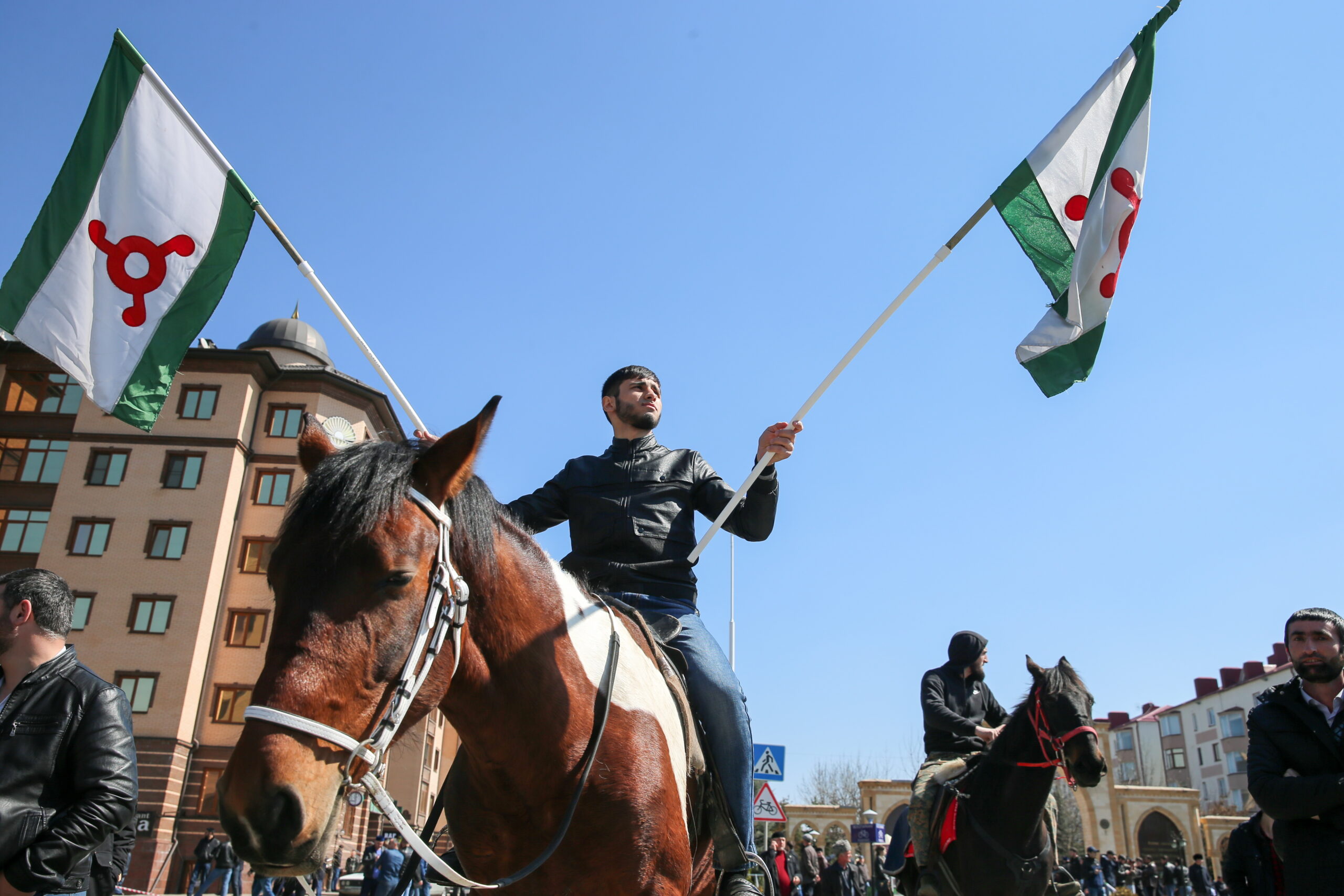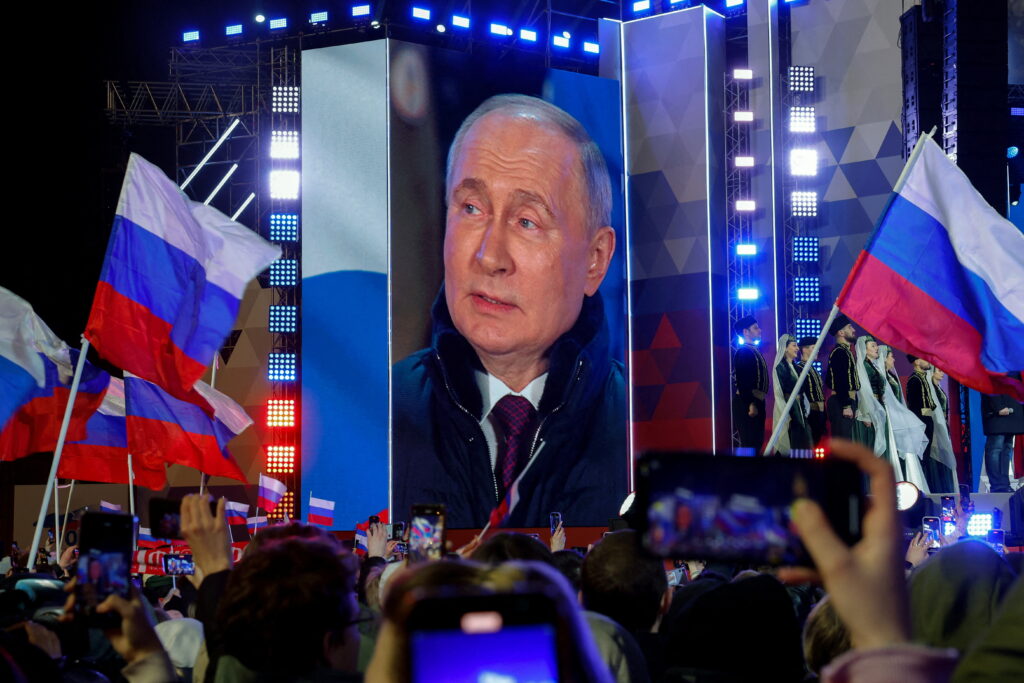In recent years, the Ingush have been expressing ever more anger and dismay at their treatment under the current North Caucasus regional policy. The republic of Ingushetia has been deprioritized, they warn, at least compared to neighbouring republics. Worse still, local politicians fear their marginalisation as Ingushetia turns into another bone of contention between Moscow and Grozny.
The current Ingush pushback against the status quo has caught Moscow off guard; the republic does not have the same history of opposing the federal center as its neighbors. By and large, the Ingush have stood by Moscow, even when Moscow reneged on promises—the most significant was the pledge to return Prigorodnyy district (disputed between Ingushetia and North Ossetia) over three decades ago. The Kremlin’s surprise also stems from how it is still struggling to deal with the regional transition from insurgency to political conflict.
The dilemma Moscow now faces is that its standard tactics for pacifying opposition (like with dissatisfied Circassians and Chechens, or Russian civil society organisations) have thus far failed in Ingushetia.
Rehearsed practices
Moscow’s pacification playbook has veered between cooption, coercion, and dissolution. Not all tactics get used in every case.
Cooption is the acquiring, by means of both carrots and sticks, the cooperation and subordination of societal leaders, e.g., religious leaders, clan elders, civil society activists, politicians, militia commanders, etc. This tactic has been used against the Circassians and Chechens.
Coercion, using repression to halt a group’s resistance, continues to be common practice against the Russian opposition and inside Chechnya. This differs from the «stick» aspect of cooption by lacking individualistic targeting; it is meant to be felt by a population, not a single person.
Dissolution has been the fate for civil society organizations who refuse to submit to the Kremlin. Additionally, at an individual level, rather than an organizational one, Kadyrov has relied heavily on this tactic.
In the case of Ingushetia, the authorities have already utilized all three tactics, but have not received desired results.
Cooption
Authorities in both Moscow and Grozny have struggled to procure influence in Ingushetia through securing the loyalties of figureheads. This is, however, more about their allies’ influence over the population, which is undercut by the figureheads’ connections to Moscow or Grozny.
The Ingush authorities are, of course, extensions of Moscow’s power. The Kremlin’s two prominent figures in the republic have historically been the governor and the head of the Centre for Countering Extremism (Centre E). However, both positions have lost their sway among the population. Then-governor Yunus-Bek Yevkurov (2008−2019) lost the respect of the population in 2018, when he secretly signed a land swap deal with Kadyrov. His action resulted in months-long mass protests and his eventual replacement with Mahmud-Ali Kalimatov. Kalimatov has found himself in equally hot water as his predecessor. His lack of influence has even been recognized by Kadyrov, who asked Ingush civil society leaders to speak for the people.
Meanwhile the leaders of Center E have lost their influence on two fronts. First, they have waged a ruthless, violent campaign in the name of countering extremism. Second, Ibragim Eldzharkiyev alienated the powerful Batalkhadzhintsy Sufi brotherhood from the authorities. The conflict between Centre E and the brotherhood is believed to have caused the assassinations of both groups’ leaders, Ibragim Belkharoev and Eldzharkiyev respectively. The lack of Center E’s popular influence is, however, compensated for in its repressive capabilities.
Kadyrov’s attempts at cooption are no more fruitful, despite exploiting sociocultural ties between Chechens and Ingush to acquire civil society figures such as Akhmed Sagov, the head of the «Bart» cultural organization. This is because of Kadyrov’s unpopularity in the republic, not least tied to the aforementioned land deal, but also due to threats of violence against Ingushetia. His cooption also fails because he utilizes his assets for political stunts (faking support), rather than for creating real popularity. The Chechen leader used Sagov at a rally to portray public Ingush support for him. Instead, Sagov was wholeheartedly condemned, with requests for official statements that he cannot speak for the Ingush people.
Coercion & Dissolution
The authorities’ efforts to gain Ingush civil society’s cooperation through repressive means have been met with failure too. Police at times responded heavy-handedly during the 2018−19 protests. In their wake, the organizers (commonly known as the «Ingush 7») were arrested; their trial concluded last December, with almost decade-long sentences handed out. In conjunction with this court case, the «Council of Teips» organization—serving as a societal mouthpiece in line with the traditional social structure and guidelines («adat»)—was dissolved. This was retaliation for its leaders being part of the Ingush 7. Despite the lengthy sentences and the fate of the Council, the protest leaders threatened renewed protests, a call that would likely be answered once again with largescale mobilization.
The leadership of the Batalkhadzhintsy have been targeted with criminal investigations, with the brotherhood’s three regional parliamentarians all removed from office. While the brotherhood has gone silent since losing its leadership, that is not out of character for the secretive group; it is also important to remember that the last time it lost its leader, they assassinated the man (Eldzharkiyev) they deemed responsible. The Ingush authorities have not seen the last of the Bataklhadzhintsy.
As for Kadyrov, he has not yet carried through on his threats, with civil society leaders, who have instead challenged him. Sarazhdin Sultygov, a co-director of the «Mekhk-Khel» organization—which has similar aims as the Council of Teips, and supported it before its dissolution—has been one of the most vocal opponents to Kadyrov’s recent ploy to gain more Ingush land. Sultygov survived an assassination attempt earlier this year, with it presumably being ordered by Kadyrov. This failed to stop his activism.
An Ingushetia policy
Moscow has already gone essentially as far as it can to implement federal control within the republic’s government, replacing Yevkurov with Kalimatov when the former was no longer able to carry out his duties and seizing control of Ingushetia’s finances. The republic’s alternative power holders have not been replaced, nor has Moscow increased trust in Kalimatov, essentially leaving its regional policy enactment rudderless.
So, what options remain for the Kremlin? They are left choosing between two extreme, but already cemented, regional visions: Deputy PM Marat Khusnullin’s or Kadyrov’s. Khusnullin’s plan, to cut the number of Russia’s regions in half by 2030, has not yet been applied to Ingushetia. However, considering Ingushetia’s financial troubles and its small geographic and demographic size, it may already be labeled for a later round of consolidations. With current problems set to aggravate the implementation of regional policies, the republic could very well be moved forward in the queue. While region unification has long been discussed—but not implemented since 2008—other top officials have since doubled down on the current effort.
Kadyrov’s conceptualization of the region appears to be historically based, seeking to reunify all of Chechnya’s former lands in Dagestan and Ingushetia. His most recent attempt to further annex the latter has not yet been determined either way. The tactical choice to threaten force rather than initiate another secret deal has not had the intended result of a quick success. However, Kadyrov’s intentions on Ingushetia seem clear enough, as his regime promotes the hashtag «100 Years of Chechen Statehood,» which in fact celebrates the creation of the Chechen-Ingush ASSR. He is also currently trying to take over the Alkhanchurtskii water canal from Ingush control. Whether Kalimatov will cave in a similar fashion to Yevkurov, or whether Kadyrov will follow through on his threats to simply invade, remains to be seen.
Neither of the options currently on the table are conducive to continued stability in the region. The Kremlin must come up with another plan or be prepared to confront renewed troubles in the region. No matter the policy chosen by Moscow, it will surely be at the expense of the Ingush.










